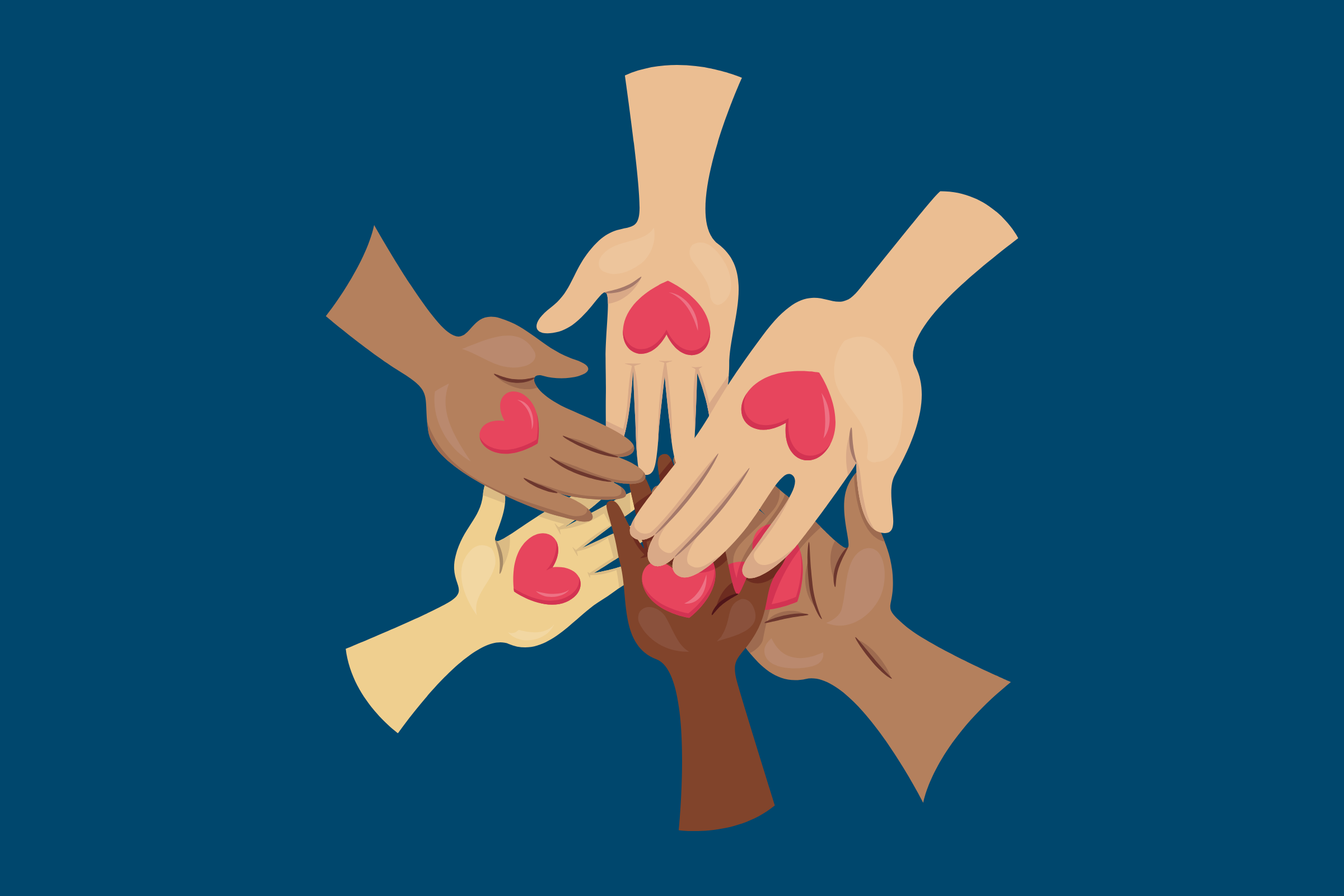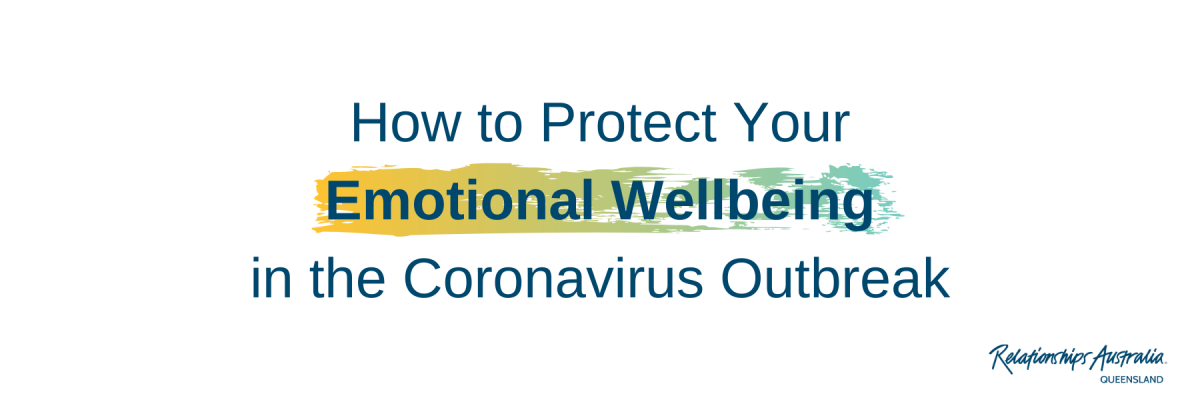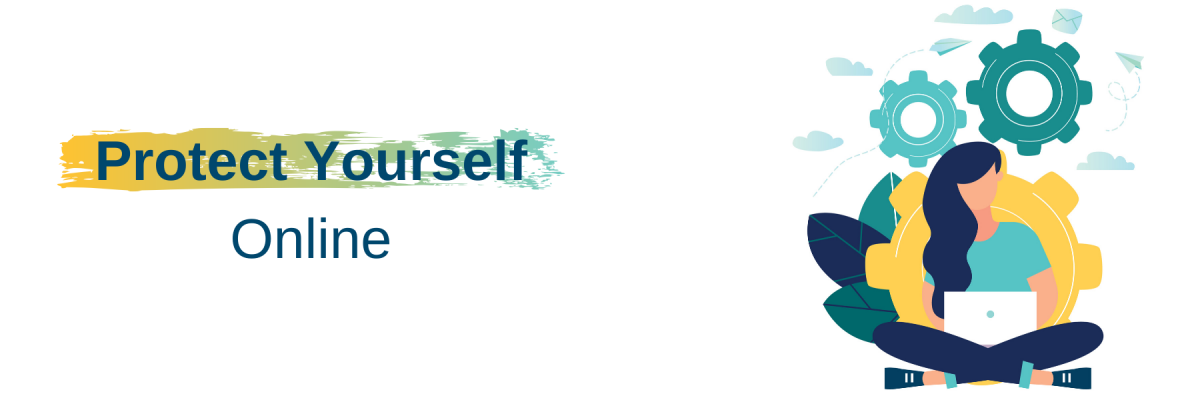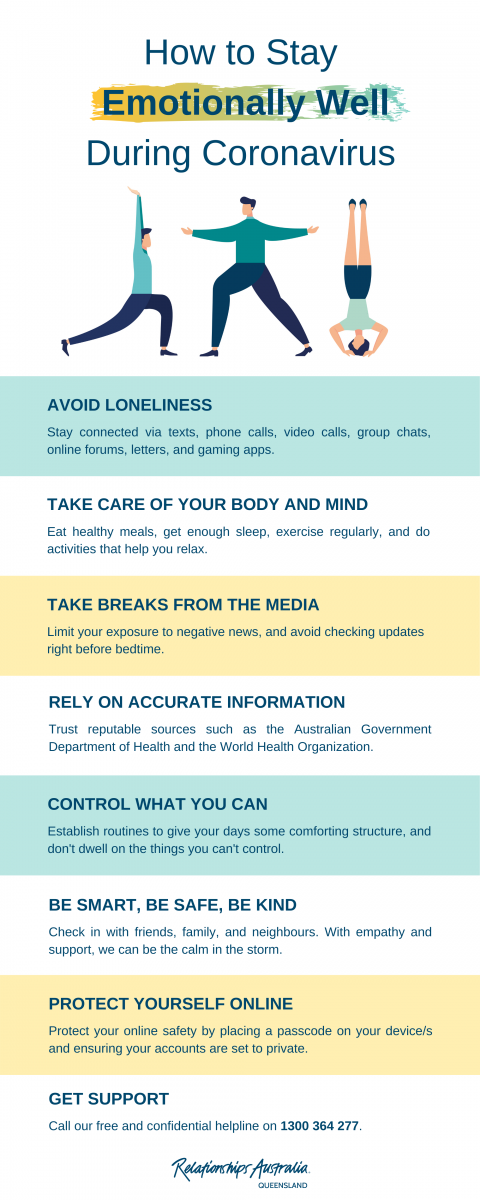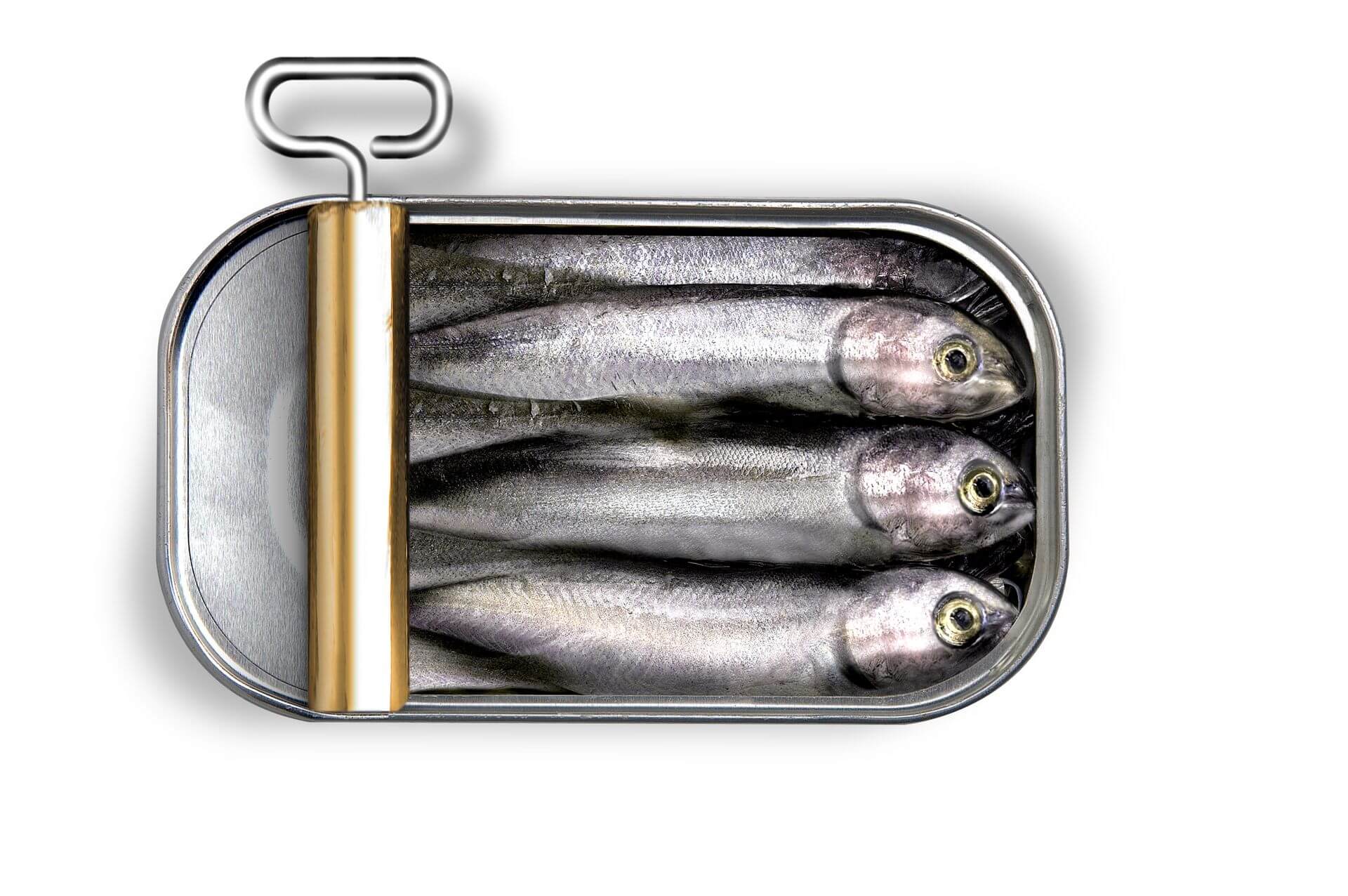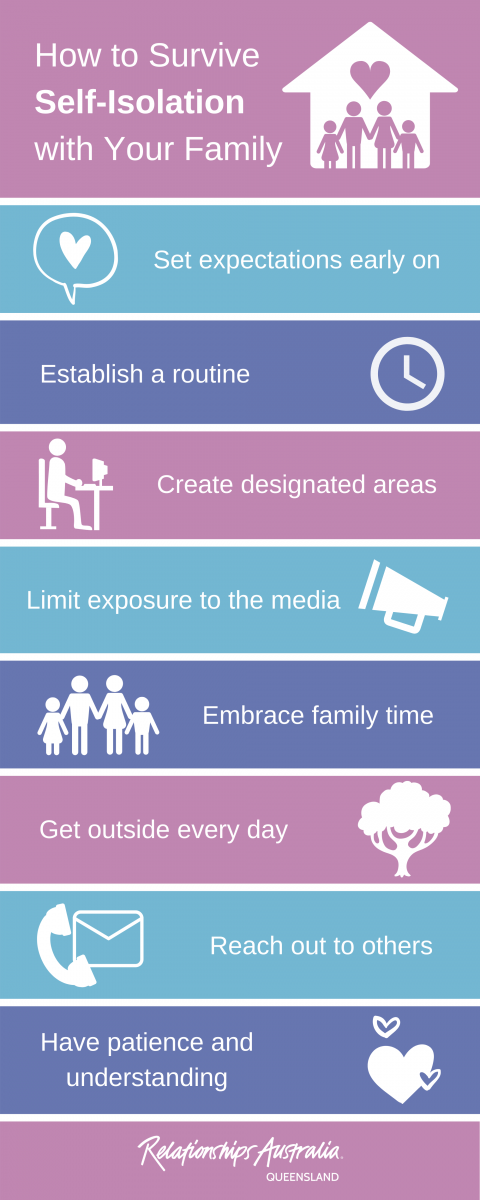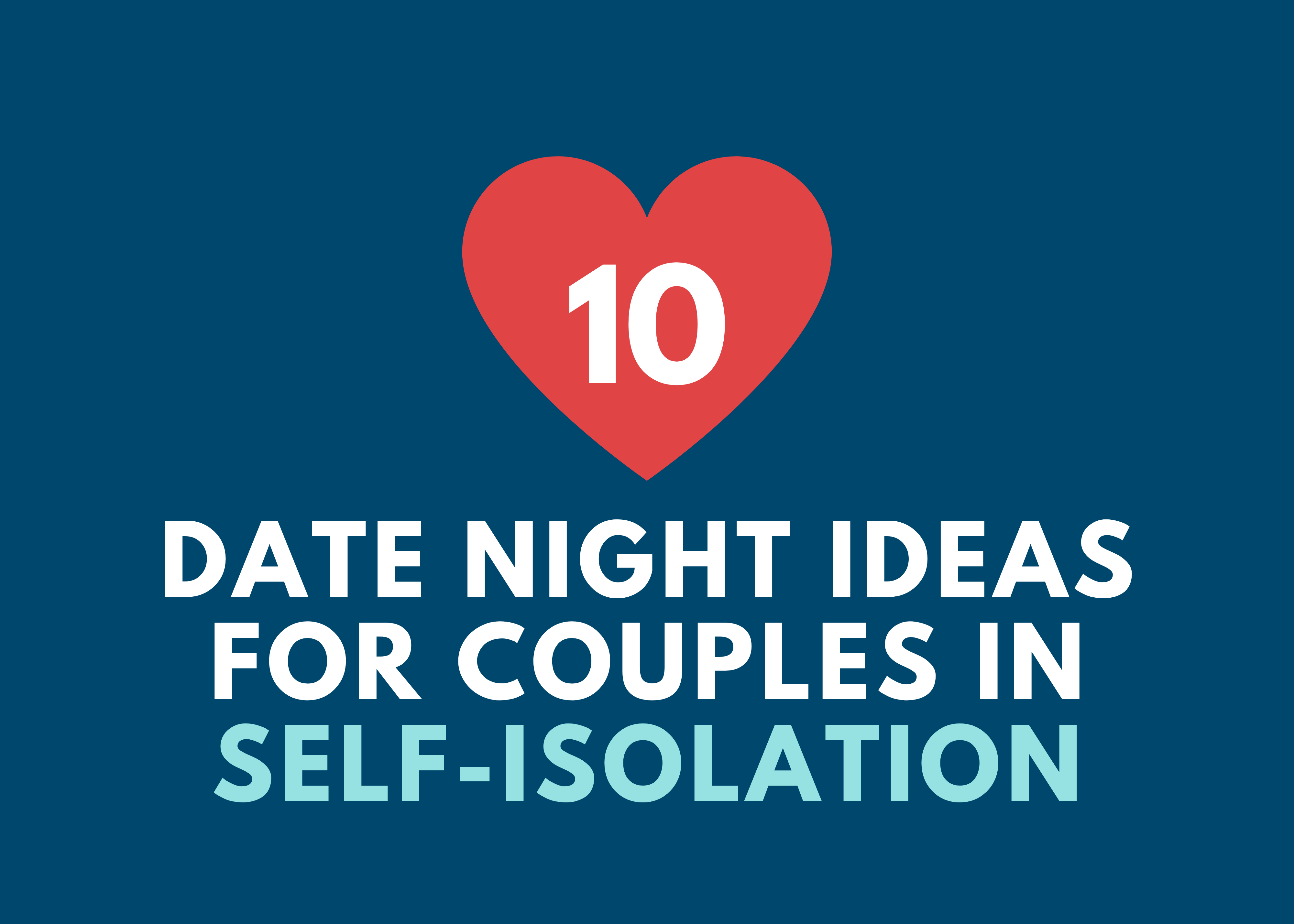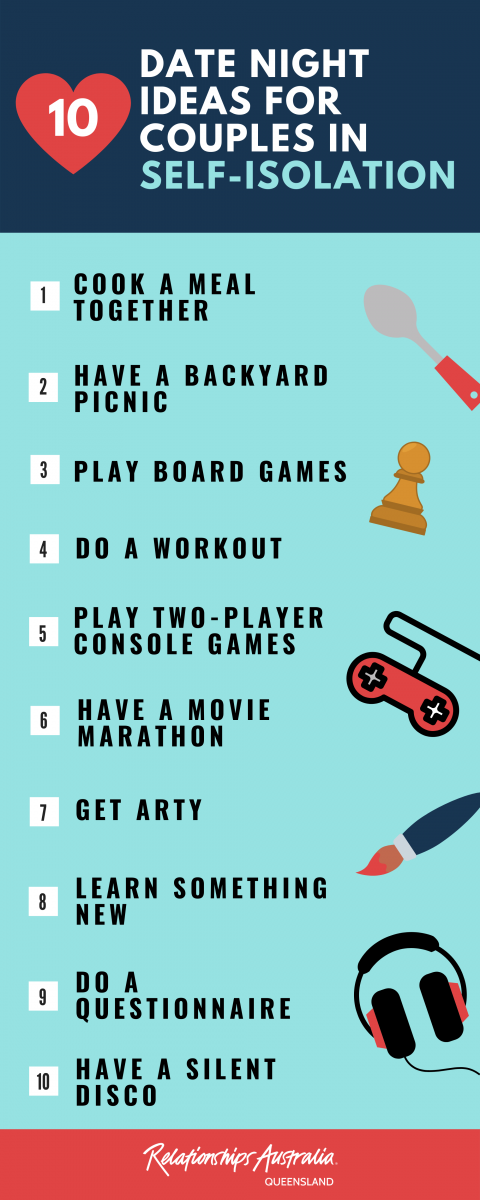For many, self-isolation is an inconvenience. But for survivors of domestic abuse, it’s a nightmare.
Domestic and family violence rates have risen around the world since the coronavirus lockdown.
Social distancing restrictions have left many survivors of domestic abuse stuck inside with their abuser – all day, every day. Survivors may be isolated from their support networks, and they may be finding it difficult to access support while in such close quarters with their abuser.
Stressful events like the coronavirus pandemic can exacerbate existing family violence. Perpetrators may use the coronavirus and related issues (e.g. financial strain) as an excuse to be abusive. But no matter what’s happening in the world, there’s never an excuse for domestic and family abuse.
We talked to Relationships Australia QLD Regional Manager Helen Poynten, and Clinical Supervisor Patricia Holden, for some advice for coping in an abusive relationship.
If you believe you or your children are in immediate danger, please call 000.
What does domestic violence look like?
Not all domestic violence involves physical hitting. Not all abuse leaves a visible bruise or mark. Domestic and family violence can happen to anyone – children and adults, women and men – and comes in many forms.
“Signs that you might be experiencing domestic violence are not always as obvious as you might think,” Helen explains. “That’s because domestic abuse is about controlling someone’s mind and emotions as much as hurting their body. Being abused can leave you scared and confused. It can be hard for you to see your partner’s actions for what they really are.”
“Usually, physical abuse isn’t what comes first. The abuse can creep up slowly. A putdown here or there. An odd excuse to keep you away from family or friends. The violence often ramps up once you’ve been cut off from other people. By then, you feel trapped. Know that there is always help available.”
These are just some of the ways survivors might experience abuse during the coronavirus lockdown and every day.
Physical Abuse
- Hitting, punching, pushing, shaking, biting, choking, or spitting on someone
- Using weapons or items to hurt someone (e.g. knives, guns, household objects)
- Withholding items like food, medicine, hand wash, hand sanitiser, and disinfectants
Sexual Abuse
- Touching or kissing someone without their consent
- Forcing or pressuring someone to perform sexual acts or have sexual acts performed on them
Emotional and Psychological Abuse
- Controlling what someone can do or say (e.g. what they can wear, where they can go)
- Controlling who someone can and can’t speak to or see
- Using news and/or misinformation about COVID-19 to control or frighten someone
- Putting someone down or calling them names
- Using disrespectful language (e.g. swearing)
- Yelling or screaming at someone
- Treating someone like a servant
- Comparing someone to others to damage their self-esteem
- Blaming someone for all the problems in a relationship
- Threatening to harm someone, their children, property, or pet
Financial Abuse
- Controlling how someone spends their money
- Stopping someone from accessing money or benefits
- Demanding money from someone or taking their belongings
- Forbidding someone from working or studying
- Limiting the amount of petrol in the car
Technological Abuse
- Using a phone or other technology to control or embarrass someone
- Monitoring someone’s communication without them knowing
- Controlling someone’s use of technology (e.g. isolating them from friends/family)
Harassment or Stalking
- Demanding to know where someone is at all times
- Watching, following or monitoring someone
- Going through someone’s personal information (e.g. texts, social media, emails, phone bills)
- Harassing someone over the internet or phone (e.g. repeated calls, texts, emails)
- Tracking someone’s movements through GPS devices and spyware
If you’re not sure whether you’re experiencing domestic abuse, you might like to speak to a trusted friend or family member.
“Trust your gut instinct,” Helen says. “If something is starting to feel weird and you’re not feeling safe in your home, reach out to a trusted friend/family member. Sometimes just checking your experiences with someone else can help you sort out how you feel about your situation and if you are experiencing a form of domestic violence.”
You can learn more about the types of domestic and family abuse here.
Creating a Safety Plan
If you’re experiencing domestic abuse, you might like to consider coming up with a safety plan in case you need to leave the environment.
“It’s good to have a plan that lists what you will do, how you will do it, where you will go, who’s involved, and what you need,” Helen explains. “It usually involves having an emergency bag if you need to leave quickly.”
Your emergency bag might include essential items such as:
- Contact numbers
- Cash
- Keys
- Medications
- Basic clothing
- Copies of important documents (e.g. passport, licence, Medicare card).
“Think of it as like a fire safety plan,” says Patricia. “It’s important to plan ahead in case something happens. Practice in your head how you might do it.”
Patricia suggests including an exit strategy such as putting the bins out and continuing away from the home to your agreed place of exit, e.g. the police station or a friend’s place.
If there are children in the home, you can include them in the plan – depending on their age and understanding of what’s happening. It’s really important for everyone’s safety that you seek support to determine when children can and can’t be included.
“It’s good to chat with someone – like a Relationships Australia QLD counsellor or DVConnect – to figure out if children need to be included,” says Patricia. “You don’t want to put yourself or your children at risk if they feel pressured to tell everything to the perpetrator.”
If you need support with a safety plan, contact Relationships Australia QLD on 1300 364 277.
You can learn more about safety planning with this helpful safety planning checklist from 1800RESPECT.
Where to Find Support
“Ask for help,” says Helen. “There are services available 24 /7 that are here if you need help. Please don’t feel ashamed of what’s happening to you. Know you are not causing the abuse you are experiencing. Violence is never excusable. Not now, not ever.”
Patricia adds, “Don’t underestimate the importance of just keeping in touch with your friends and family. You never know when you might need support, or be a support to others.”
Helen recommends being inventive with your friends to find different ways to get support if you’re feeling unsafe.
Here is an example of a post on Facebook:

To talk to a telephone counsellor, you can call us on 1300 364 277 Monday-Friday between 8am-8pm and Saturday between 10am-4pm.
1800RESPECT: 1800 737 732
DVConnect Womensline: 1800 811 811
DVConnect Mensline: 1800 600 636
Sexual Assault Helpline: 1800 010 120
Kids Help Line: 1800 55 1800
Lifeline: 13 11 14
